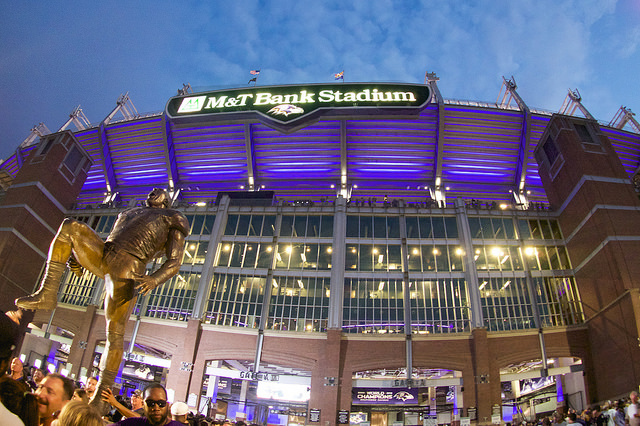
A recent article in the Guardian documents the recent backlash against former Baltimore Ravens linebacker Ray Lewis for kneeling during the National Anthem before his team’s game. Many fans once lauded Lewis for his dedication and hard work for the team, enough to have a statue raised in his honor outside the team’s stadium. However, now that Lewis has joined in on the kneeling, more than 80,000 individuals have signed a petition to remove the bronze statue. This case is in no way unique, as a number of historic examples from American baseball, basketball, and boxing reflect a tendency in the United States to condemn black athletes who seek racial justice.
Sociologist Douglas Hartmann suggests that people have been trying to protect the “sacred space of sport” since the late 1960s. Many consider sports as “not the right place” for vocalizing political issues, and when players violate this sanctity, they often face severe repercussions from the public arena. A notable case was that of the 1968 Olympics, where before the games a number of black American athletes refused to participate, and two that did clenched their fists and bowed their heads on the medal podium. Public response towards these athletes was malicious. According to Hartmann,
“They got threats from the beginning. They reported death threats, hate mail. The attitude of a lot of the sportswriters, especially before the Olympics, was ‘How dare you, in this arena that’s treated you so well.’ That they were enemies of America.”
Both Lewis and the 1968 Olympics point to the importance of activism in the face of national or international political symbols, and both end with the public denouncing these individuals and their actions. Hartmann explains, “What doesn’t happen is engaging the protesters’ actual ideas about race and racism.”

Comments 2
Scott Moyer — November 3, 2017
As a continuation of your closing statement, whose responsibility is it to "engage the protesters’ actual ideas about race and racism" and how should they do it?
Seyton McDaniel — November 3, 2017
Sports are the escape entertainment for millions of fans. During the course of whatever game they're watching they can revel in the exploits of their favorite teams and players while ignoring the sometimes harsh or stressful goings on in their lives. Disrupting that entertainment/escape results in disapproval. Add to that the perceived disrespect of one's nation and culture and you get an emotionally charged disapproval.
Many people may support the actual cause of the protestor even if they strongly, even vehemently disapprove of their manner of protest. You can't exercise your freedom of expression without inspiring the freedom of expression of others.